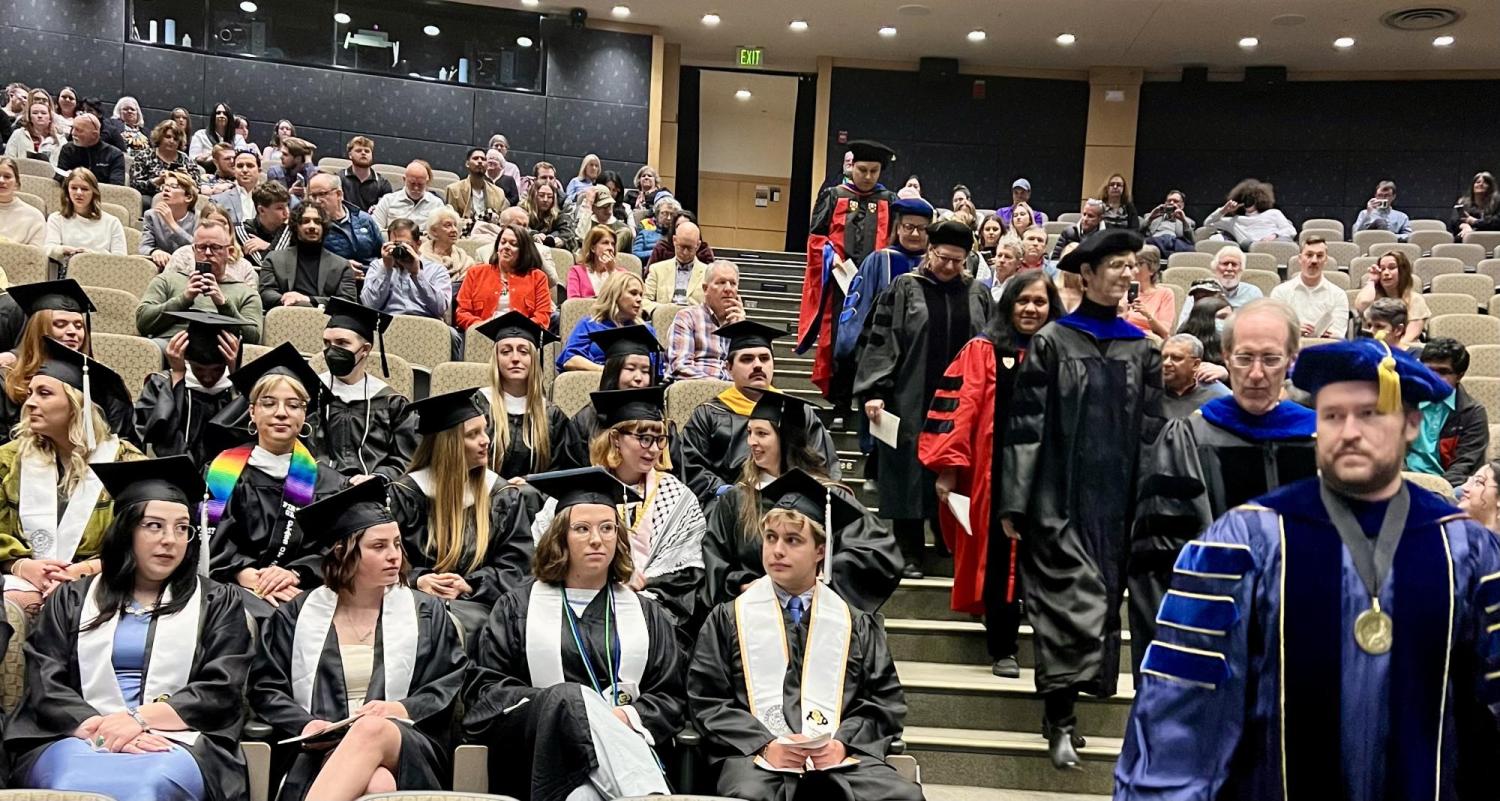CU Linguistics celebrates class of 2024 in May graduate recognition ceremony
On May 8, 2024, the CU Linguistics community gathered in Muenzinger Auditorium to celebrate its graduating class of 2024. Hosted by department chair Laura A. Michaelis, the ceremony recognized the achievements of 49 graduating students (21 BA, 13 MA, 3 MS and 5 PhD). Reflecting the interdisciplinary focus of linguistic study at CU, 80 percent of Linguistics BA graduates combined the Linguistics degree with a double or triple major, a second degree or a minor in another discipline. Their other major/minor departments included: Anthropology, Applied Math, Asian Studies, Atmospheric and Oceanic Sciences, Business, Cinema Studies, Computer Science, Ecology and Evolutionary Biology, Economics, French, Geography, German, Japanese, Jewish Studies, Korean Language and Culture, Political Science, Spanish and Speech, Language & Hearing Science. Eight Linguistics majors graduated with Distinction, obtaining at least a 3.75 cumulative GPA for coursework at CU. Three Linguistics MA graduates wrote MA theses and nine graduated with an interdisciplinary certificate—in Cognitive Science, Culture, Language and Social Practice or Teaching English to Speakers of other Languages. This year marked only the second in which student speakers were invited to address the graduates. Delivering the Undergraduate Address was Gina Pitts, a Linguistics major with TESOL emphasis, who plans to work with immigrant and refugee learners of English. The Graduate Address was given by Linguistics PhD graduate Velda Khoo, who spoke about her upbringing in and PhD research into the linguistic fusion zone of Singapore. Dr. Khoo also received her PhD hood from her advisor, Distinguished Professor Kira Hall, during the ceremony. The ceremony also recognized two outstanding continuing students as recipients of the David S. Rood Scholarship: Tessa Moskov, a Linguistics, Psychology, and Neuroscience triple major, and Rachel Wagner, a Linguistics major with minors in Spanish and Ethnic Studies. In closing the ceremony, Prof. Michaelis urged graduates to use the tools of the discipline to help our societies confront the twin crises of climate change and climate disinformation, saying "The world is an even more troubled place now than it was when you started your degree, but I believe the world needs your contributions now more than ever".



